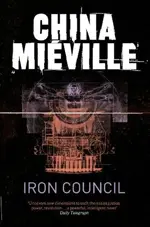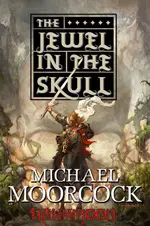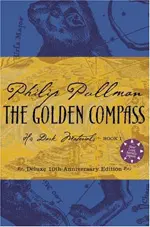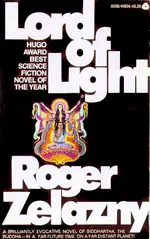As we Americans approach Independence Day, where we broke away from the British monarchy, I find myself thinking of the large segment of fantasy fiction that seems to want to run right back toward it. In much of fantasy, elements like monarchies and royal bloodlines are not just part of the landscape but are cherished and made into monuments.
The Lord of the Rings, for example, reads largely as a defense of a certain rural British culture. Change, in the form of industrialization, is demonized in Saruman’s schemes. There’s a sentimentality of losing the old ways, and those who rule wisely always seem to do so because of their pure Numenorean blood.
Looking not so far to Tolkien’s friend, C. S. Lewis, we see similar sentiments in the Chronicles of Narnia. Those who fight for Narnia, always do so to defend the social hierarchy that places humans (often boys and girls) at the top, and the natural denizens of Narnia -- the talking beavers and fauns and dwarves -- beneath them. I’ve always wondered why the Narnians accepted this.
Much of fantasy shows similar tendencies, and when there’s war it tends to be against absolute evil. Or a wicked tyrant who has seized the throne. When right is restored, the monarchy still remains, only with a kinder face upon the throne. There’s largely a sense of restoring the status quo.
But not always. There are fantasy stories that not only question the status quo, but actively work against it. As I mentioned in my first column, fantasy is a genre of symbols, of metaphors, and these can be employed in the service of revolutionary aims.
On the occasion of the celebration of American Independence (as the result of revolution), here then are four for the Fourth of July.
Iron Council -- China Mieville
“Imagine if one of them were turned. Imagine if one could be bought.'
'But they're chosen just so's they can't be bought...'
'History...' Jacobs spoke with terse authority. Brought Ori to a hush. 'Is all full. And dripping. With the corpses. Of them who trusted the incorruptible.”
 If you’ve been paying attention to my previous columns, you’ve seen China Mieville mentioned here a few times already. It's no secret that I'm a fan of his writing, but also of his thoughts on fiction as well. Mieville is notably a socialist and Iron Council is perhaps the most overtly “revolutionary” of his works.
If you’ve been paying attention to my previous columns, you’ve seen China Mieville mentioned here a few times already. It's no secret that I'm a fan of his writing, but also of his thoughts on fiction as well. Mieville is notably a socialist and Iron Council is perhaps the most overtly “revolutionary” of his works.
The third in his series of books set in Bas-Lag, Iron Council tells the story of New Crobuzon’s revolutionaries, in their various forms. Readers of Perdido Street Station will know of the corruption of New Crobuzon. No wonder, then, that people chose to rise up against it.
The novel begins with some folks from New Crobuzon heading out into the frontier on the trail of Judah Low, a leader of the revolutionaries back in New Crobuzon. They are being hunted by militia, and we soon find out they are looking for something called Iron Council, which many think is a legend, but Judah knows exists.
Meanwhile, Ori, a young revolutionary firmly entrenched in New Crobuzon, is growing dissatisfied with the others in the movement and their lack of action, and seeks out a more active way to fight against the rulers of the establishment.
We soon learn that Iron Council grew out of the Perpetual Train, a railroad New Crobuzon builds to extend its influence further into Bas-Lag, and to aid in its war against Tesh. Working on the railroad are a mixed crew of people, some xenians (non-human races), some Remade (criminals the government has altered, often in grotesque ways), and, as usual, a few suits and soldiers to help keep them in line. As the train moves, it attracts others to it - camp followers, and more. It becomes, essentially, an entity with its own ecology. When things start to break down the workers revolt and manage, through their own alliances, to fight off the militia forces and those who run the Perpetual Train. In the end these rebels claim the train, taking it into the wilds and laying and relaying track as they move around. This becomes Iron Council, a symbol of successful defiance against the New Crobuzon government, one which they, at the start of the novel, are still looking to stop. That’s why Judah goes after them, to warn them.
I won’t spoil the novel for those who haven’t read it, but the threads do come together and we see the results of the different decisions the revolutionaries make along the way. Mieville doesn’t shy away from any of it, showing the violence and the sacrifices along the way. Iron Council is also inspired by Westerns and for most of the frontier scenes this comes through, albeit with a very Bas-Lag flavor. It's not the most restrained of Mieville's novels (he seems to have gained much of that with his later books); it overflows with language and ideas, but its still a strong novel.
I know some people were turned off by Iron Council, but it’s as revolutionary as they come.
The History of the Runestaff - Michael Moorcock
“In the west lay the island empire of Granbretan, the only nation with any real political stability, with her half-insane science and her ambitions of conquest. Having built the tall, curved bridge of silver that spanned thirty miles of sea, the empire was bent on increasing her territories by means of her black wisdom and her war machines...”
 Though many of his stories deal with kings and kingdoms, Moorcock definitely embodies the revolutionary spirit that I’m talking about. Most of his characters are tragic and flawed. Elric, perhaps his most famous creation, is at first dependent on drugs for his strength, then later the sword Stormbringer. And he becomes a traitor to his people.
Though many of his stories deal with kings and kingdoms, Moorcock definitely embodies the revolutionary spirit that I’m talking about. Most of his characters are tragic and flawed. Elric, perhaps his most famous creation, is at first dependent on drugs for his strength, then later the sword Stormbringer. And he becomes a traitor to his people.
However, for this column I chose a different sequence of stories, one with a less tragic protagonist. Dorian Hawkmoon lives in a far future version of Europe, and was born in what is now Germany. In a reversal of sorts, Hawkmoon’s world is overrun by Granbretan, the futuristic Great Britain intent on the conquest of Europe. When asked about this choice, Moorcock talked about wanting to state something to the effect of “Hey, we’re not always the good guys.”
Hawkmoon is perhaps a reluctant hero. He aims to do the right thing, but, like other Moorcock heroes, is often set upon tasks by others, such as The Warrior in Jet and Gold, who serves the mythical Runestaff. He is tasked with retrieving the Runestaff at one point, but decides not to accept. Of course circumstances conspire against him and so he does indeed claim the Runestaff with which he hopes to challenge Granbretan once and for all.
Hawkmoon has many adventures over the course of the first four books, but Granbretan is always lurking in the background, always hungry to conquer Castle Brass, the home of Hawkmoon’s love and her father. In the end, Hawkmoon must lead an army against Granbretan to stop them once and for all.
While I love many of Moorcock’s series, Hawkmoon was one of my first favorites. Keep an eye out for various send-ups of famous British personalities in the book as well.
His Dark Materials - Phillip Pullman
“Seems to me-" Lee said, feeling for the words, "seems to me the place you fight cruelty is where you find it, and the place you give help is where you see it needed....”
 This series, beginning in this country with The Golden Compass (and everywhere else as Northern Lights) is surprisingly subversive. When we’re introduced to Lyra Belacqua, she just seems to be a precocious, intelligent girl who gets caught up in adventure. In Lyra’s world everyone has a daemon, a familiar or animal-like companion that they can’t be separated from. Or so they think.
This series, beginning in this country with The Golden Compass (and everywhere else as Northern Lights) is surprisingly subversive. When we’re introduced to Lyra Belacqua, she just seems to be a precocious, intelligent girl who gets caught up in adventure. In Lyra’s world everyone has a daemon, a familiar or animal-like companion that they can’t be separated from. Or so they think.
When her friend is stolen away (like many of the other children around Oxford), Lyra goes to find him, having, of course, many interesting adventures with witches and armored polar bears. But soon she realizes that what she is really caught up in is a battle against the forces of Heaven. That her uncle Asriel is seeking to fight not only the Church, but [He] who it serves. Asriel is seeking to take down The Authority -- essentially rebelling against God.
The trilogy is largely marketed toward young adults, but don’t let that stop you. It’s an amazing series of books. I’ll admit that the third book falters after the promise of the first two, but Pullman is certainly a great writer and he doesn’t pull punches here.
Lord of Light -- Roger Zelazny
“The Buddha and his words are an abomination in the eyes of the gods.
“But why?”
“He is a bomb-throwing anarchist, a hairy-eyed revolutionary. He seeks to pull down Heaven itself. “
 Roger Zelazny, before penning the first Amber novel, tackled the idea of what it’s like to be a god in Lord of Light. One of Zelazny’s finest works, Lord of Light takes place on a world that takes its shape from Hinduism and Buddhism. The first arrivals to this world have now become gods, taking their cues from the ancient gods of Hinduism. One of these is the Buddha, the Lord of Light, Mahasamatman, or, as he prefers to be called, Sam.
Roger Zelazny, before penning the first Amber novel, tackled the idea of what it’s like to be a god in Lord of Light. One of Zelazny’s finest works, Lord of Light takes place on a world that takes its shape from Hinduism and Buddhism. The first arrivals to this world have now become gods, taking their cues from the ancient gods of Hinduism. One of these is the Buddha, the Lord of Light, Mahasamatman, or, as he prefers to be called, Sam.
Sam has chosen to walk among the people rather than stay in Heaven and has revived the old teachings of Buddhism. When he notices that the gods are keeping mankind, their own offspring, in ignorance, keeping their grip tight on his development while living like gods, he begins a plan of rebellion. He has the powers of a god, but he is one against many, and his long path to overthrow the current order makes up the bulk of the book.
Like much of Zelazny’s work, this book is a treasure of ideas, about religion, Buddhism, the nature of being a god, and more. And while the book ostensibly takes place in the future, long after people have left Earth, carrying their traditions with them, the cyclical nature of Hindu mythology makes it just as reasonable to see this as the history of Hinduism on Earth.
And for those who are thinking, isn’t it science fiction? -- I give you this quote from the author himself -- “Lord of Light was intentionally written so that it could be taken as a science fiction or a fantasy novel. On the one hand, I attempted to provide some justifications for what went on in the way of the bizarre; on the other, I employed a style I associate with fantasy in the telling of the story. I wrote it that way on purpose, leaving some intentional ambiguity, because I wanted it to lie somewhat between both camps and not entirely in either..”
So, that’s my four for the Fourth. Do you know of other fantasy novels that deal with revolution? If so, please sound off in the comments.

About the author
Rajan Khanna is a fiction writer, blogger, reviewer and narrator. His first novel, Falling Sky, a post-apocalyptic adventure with airships, is due to be released in October 2014. His short fiction has appeared in Lightspeed Magazine, Beneath Ceaseless Skies, and several anthologies. His articles and reviews have appeared at Tor.com and LitReactor.com and his podcast narrations can be heard at Podcastle, Escape Pod, PseudoPod, Beneath Ceaseless Skies and Lightspeed Magazine. Rajan lives in New York where he's a member of the Altered Fluid writing group. His personal website is www.rajankhanna.com and he tweets, @rajanyk.








